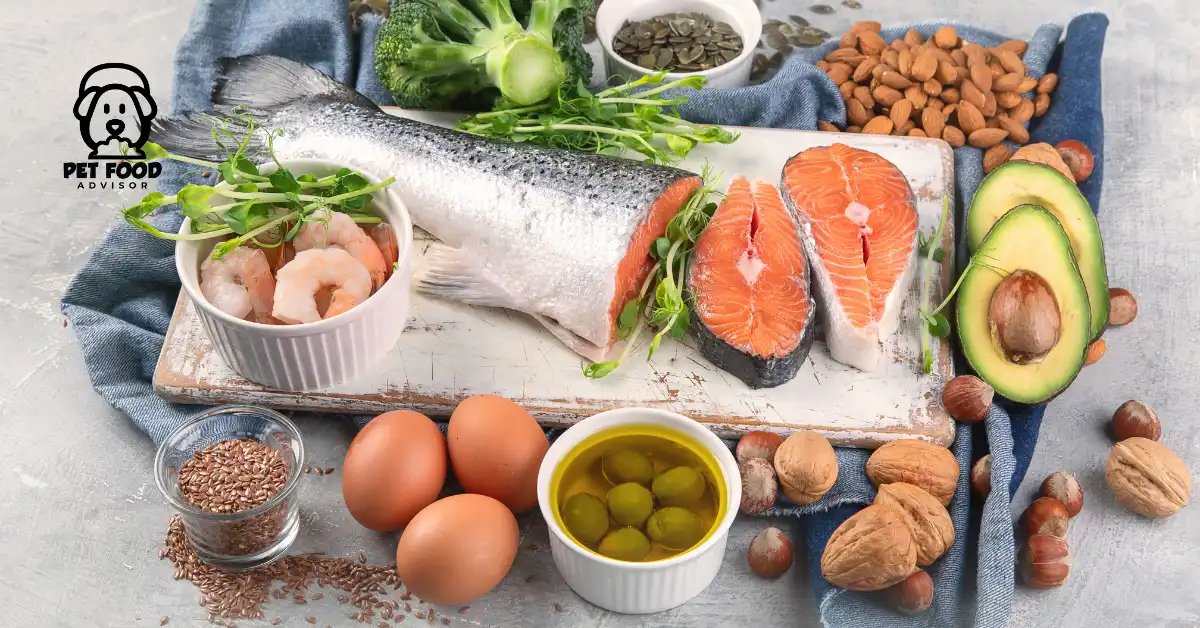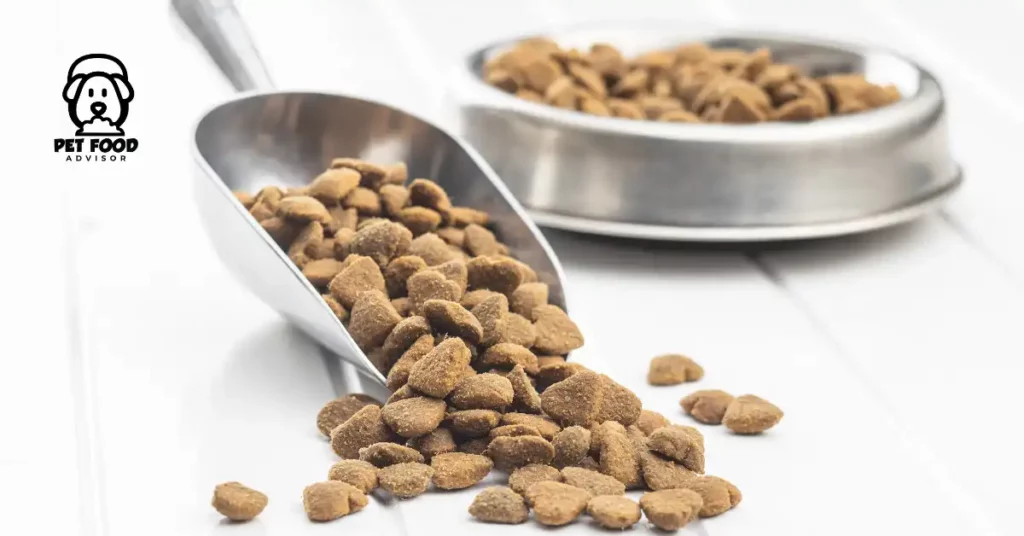5 Best Anti-Inflammatory Dog Food | Veterinarians Choice
When your dog is in pain, struggling with discomfort, or facing limited movement, it is possibly due to inflammation. Every dog owner wants to resolve the problem for the dogs and provide them comfort. I want to tell you about the diet that can help alleviate their suffering. You must know that the proper diet is the best solution for inflammation.
So, I am here to guide you on the best anti-inflammatory dog food which is helpful for anti-inflammation, from practical dietary recommendations to exploring the benefits of supplements and identifying familiar sources of stress.
It would help if you considered introducing your dog to a high-quality bone broth to enhance their meals. A great choice is Bluebird Provisions, known for its rich content of collagen protein, glucosamine, and chondroitin components that can contribute to relieving inflammation.
Inflammation in Dogs
Inflammation is how your dog’s body reacts when they’re hurt or sick. It’s like their body’s natural defense system that helps them get better. It is their body’s way of sending extra help, like more blood and special cells, to where they need it. If you see your dog limping, their skin red or puffy, or they’re licking one spot too much; they might have inflammation. If you don’t understand that it is inflammation, you can also consult your dog’s veterinarian.
Sometimes, their body inflates when your dog gets a bump or a scratch. That’s normal and usually goes away as they heal. It’s like an ongoing problem that affects their whole body. It can happen inside their tummy, in their joints, and even in their muscle.
This chronic inflammation can lead to big problems like cancer, arthritis, heart trouble, and other serious things. So, treating inflammation is essential to ensure your dog stays healthy and happy.
Read More: How to identify Yeast Infection in Dogs
What Triggers Inflammation in Dogs?
Physical Factors
Everyday activities like walks, playtime with other dogs, and even disciplinary actions can cause dogs physical stress, potentially leading to inflammation.
External Influences
External stressors can also impact dogs. These cover risks of car exhaust, environmental pollutants, chemicals found in sprayed grass or foods, and allergens present in their diet.
Internal Triggers
In some cases, internal elements can spark inflammation. This could involve the presence of bacteria or parasites within your dog’s body, often originating from something they ingested.
Mental Impact
Dogs share emotional experiences with humans, feeling worries, anxiety, and melancholy. Stressors such as separation anxiety or irregular daily routines can initiate dog inflammation. Establishing a consistent schedule for meals and walks can provide comfort.
Understanding Anti-Inflammatory Dog Food
Anti-inflammatory dog foods is specially made with specific ingredients to reduce dog inflammation. This type of food often includes components like omega-3 fatty acids, antioxidants, and bone broth, known for their inflammation-reducing properties.
The essence of anti-inflammatory dog food goes beyond just adding beneficial elements. It involves eliminating common activate foods that might cause inflammation. Many dogs suffer from allergies that can be challenging to identify through testing alone.
This means your dog could consume food that triggers sensitivity only if you closely monitor their reactions and behaviors.
Top 5 Anti-Inflammatory Foods for Dogs
Bone Broth For Dogs
Bone broth is an excellent choice as an anti-inflammatory food for dogs. It is because it is rich in collagen protein, glucosamine, glutamine, and glycine. These components are potent anti-inflammatories that can aid in healing your dog’s GI tract and alleviating joint pain. You can easily enhance your dog’s regular wet or dry meals by pouring 1/8 to 1/4 cup of liquid bone broth or one teaspoon to 1 tablespoon of bone broth powder. Mix it in and create a tasty gravy-like topping your dog will love.
Dehydrated bone broth retains the nutritional benefits of raw meat, making it an ideal choice for dogs with allergies or bone sensitivities. For optimal results, I recommend Bluebird Provisions’ grass-fed beef bone broth, a top-notch option for your dog’s health.
Fatty Fish For Dogs
Including fatty fish in your dog’s diet is the best option to give them protein and essential omega-3 fatty acids.
But you must be cautious and ensure all bones are removed from the fish before feeding it to your dog, as bones can pose a choking hazard.
While fatty fish like salmon might be pricey for both you and your dog, some dog food brands use deboned fish with scraps to capitalize on this nutritional trend. Researching that the dog food you choose provides omega-3s for the intended benefits of a fish-based diet is crucial.
If you’re seeking a safe and effective way to supplement your dog’s diet with omega-3s, consider trying low-sodium sardines in water. I recommend Seasons brand, which offers wild-caught, certified sustainable sardines. These fantastic sources of EPA and DHA contribute to your dog’s health.
Turmeric for Dogs
Regarding the dog’s health, I tell you that turmeric in your dog’s diet is a suitable option to consider. This natural spice can help reduce inflammation, enhance digestive and metabolic function, and provide various other health advantages.
Smaller dogs only need about 1/4 teaspoon of turmeric, while larger ones may require more. Alternatively, you can choose turmeric chews specially made for dogs. I started giving these to my dog, Jeny, positively impacting his energy and mobility. It’s always a good idea to consult your vet for specific feeding guidelines to ensure you’re giving the right amount.
Omega-3 Fats For Dogs
Omega-3 fats are crucial to your dog’s health, just like ours. These fatty acids, commonly found in fatty fish, hold benefits for both dogs and humans and also support the control of inflammation and promote brain health.
Omega-3s have their loyal section to highlight their value. Although many pet foods include them, it’s worth noting that not all products contain these essential fats.
Regarding sources, choosing omega-3s from fish like salmon brings more advantages than plant sources like flax. The omega-3 (ALA) type in plants is less efficiently converted into EPA and DHA, which offer the main benefits.
Supplements are available for pets and humans to ensure your dog gets sufficient omega-3s. Zesty Paws’ Wild Alaskan Salmon Oil is a notable option, sustainably sourced from wild-caught Alaskan salmon and boasting an impressive EPA and DHA ratio. Quality control and sourcing are the main ones, so consulting your vet or conducting thorough research before purchasing is recommended. When considering accurate food sources, omega-3-rich options like salmon, mackerel, herring, and sardines stand out for their health benefits.
Blueberries for Dogs
Blueberry is a source of anti-inflammation in dogs. It is a natural abundance of antioxidants, potassium, and vitamin C. It contributes to your dog’s health and happiness.
These tiny berries are the best ingredient to aid in reducing chronic inflammation. I use blueberries as a treat for my dogs, but you can quickly sprinkle a handful into their meals. Some pet owners even blend them to create tasty dog smoothies. While fresh organic blueberries are the best choice, freeze-dried blueberries can be handy.
I highly recommend OSEL’s certified organic wild blueberries if you’re considering dried blueberries. They stand out as the finest ones I’ve come across.
Conclusion
The top 5 anti-inflammatory dog foods offer a valuable solution for pets with inflammatory conditions. These carefully curated options prioritize natural ingredients that alleviate discomfort and promote well-being. While individual results may vary, many dogs have improved their health and vitality after switching to these diets. Pet owners seeking to manage inflammation through nutrition have a range of choices to consider, each with its unique benefits. However, consulting a veterinarian before making dietary changes is crucial to ensure the best possible outcome for your beloved canine companion.





